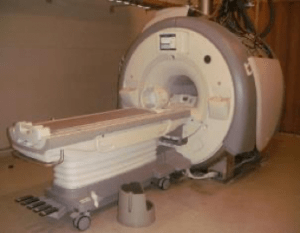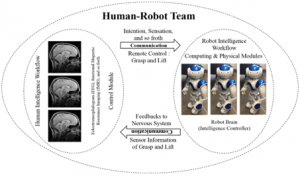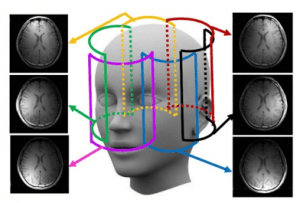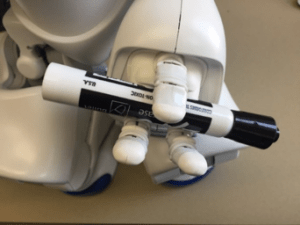Research
Fast and Robust Magnetic Resonance Imaging
Magnetic Resonance Imaging (MRI) has revolutionized radiology for over half a century by its ability to visualize not only the detailed anatomical structures, but also function and metabolism information. MRI provides an imaging technique which is practically non-invasive and without any ionizing radiation. In comparison with other imaging modalities like X-ray, ultrasound, or computed tomography (CT) scan, MRI provides more information about structures inside the body in many cases. A major limitation with MRI is its low imaging speed that makes it difficult to image the moving objects. Long imaging time increases clinical cost, reduces patient’s comfort, and degrades image quality with motion artifacts. We are interested in developing fast and robust MRI methods using multidisciplinary technology including artificial intelligence, signal processing, and MR physics.
Non-Invasive Brain-Machine Interaction
Unlike the traditional communications between human and AI agents such as graphical user interface, facial expressions, gestures, speech, and physical touch, Brain-Machine Interaction (BMI) builds a direct connection through extracting information from neural activity. Besides control and monitoring, BMI also supports advanced functionality like cognitive computing. However, BMI suffers multiple technical challenges. For example, brain signal is known to be nonstationary and easily affected by artifacts; human excessive mental workload deteriorates overall performance. Our primary research goals focus on fusing human and machine intelligence in BMI to improve reliability of control and monitoring system, lower cognitive workload, and augment human capabilities.





